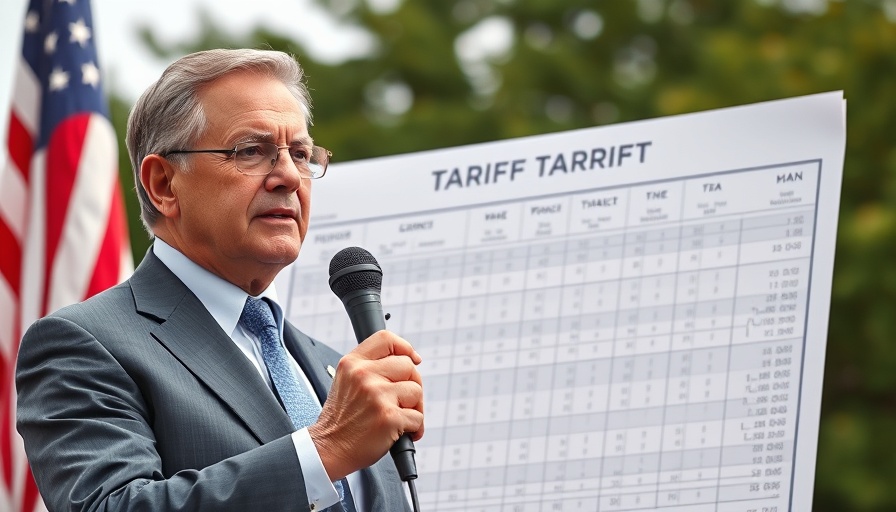
Clarifying Trump’s Tariff Powers: A Supreme Court Showdown
In an unusually rapid development, the Supreme Court has agreed to hear a case regarding President Trump’s authority to impose sweeping tariffs under federal law. The high court's decision to expedite the hearing signals the gravity of the arguments presented as small businesses and states challenge Trump’s use of emergency powers in a matter that holds profound implications for the U.S. economy.
Legal Controversies Surrounding Tariffs
As the Supreme Court prepares to hear arguments this November, the stakes are exceedingly high. Lower courts have previously ruled that many of Trump's tariffs were imposed illegally, yet a 7-4 split in an appeals court has left them in effect. Critics argue that the president has overstepped his bounds, invoking national emergency authorities to set import taxes on products from nearly every corner of the globe. Such tariffs have reportedly placed immense financial strain on numerous small enterprises, some teetering close to bankruptcy.
The Administration’s Defense: Emergency Powers Justified?
The Trump administration contends that the situation necessitates urgent action. Solicitor General D. John Sauer argues that the legal framework grants the president the power to regulate imports in response to emergencies. Moreover, they assert that failure to uphold these tariffs could lead to dire economic consequences and hamper ongoing trade negotiations.
Precedents and the Constitutional Role of Congress
Historically, the balance of tariff authority has seen a shift, with Congress gradually ceding power to the presidency over the decades. The 1977 International Emergency Economic Powers Act (IEEPA) permits the president to enact tariff measures without Congress’s explicit approval during emergencies. This opens the door for debate on what constitutes an emergency and whether the current economic landscape truly meets those criteria.
Implications for the U.S. Economy
The potential repercussions of the Supreme Court's ruling extend beyond constitutional law; they could reshape trade relations and the U.S. economic framework. Since the tariffs' inception, revenue from them has surged, totaling $159 billion by late August—a significant increase compared to the previous year. However, critics worry about the inflationary pressures and potential repercussions on consumer prices if tariffs are lifted, highlighting a critical tension in economic policy.
The Role of the Supreme Court: A Test of Executive Power
This case will serve as a litmus test for the Supreme Court’s willingness to curb executive power, especially regarding actions taken by President Trump. With a court comprised largely of justices appointed by Trump himself, observers are keenly watching for how they navigate this intricate constitutional dilemma.
Future Predictions: What Lies Ahead?
Should the court find in favor of the Trump administration, expect further expansion of executive powers concerning trade. Conversely, a ruling against these tariffs could restore congressional authority in tariff issues, fundamentally affecting future administrations' approaches to trade and economic crises.
As we approach the November hearing, the nation waits with bated breath, uncertain of how this pivotal decision could resonate throughout American trade policy and governance. Stay informed on these developments and how they may impact our economy.
If you’re interested in learning more about current legal battles affecting national trade and their broader implications, follow our coverage as we delve deeper into these unfolding events.
 Add Element
Add Element  Add Row
Add Row 



Write A Comment